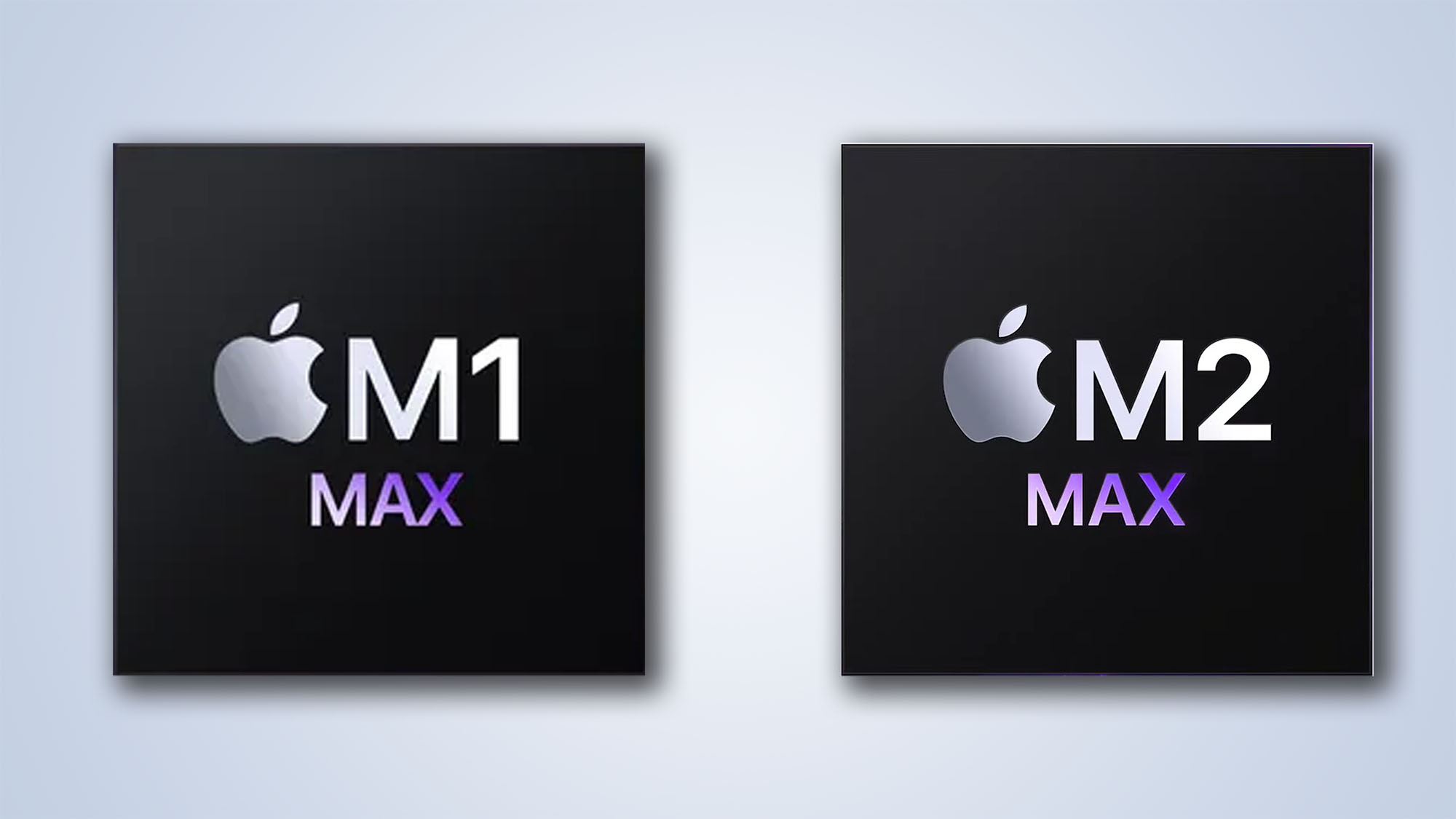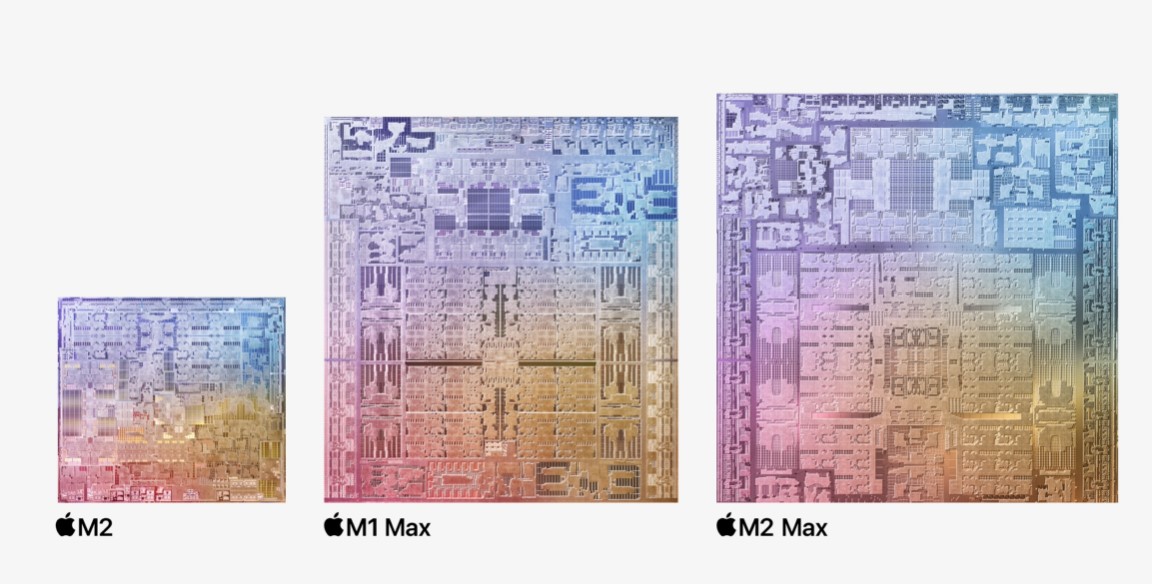M2 Max vs M1 Max: which one should power your next MacBook Pro?
Which is better: M2 Max or M1 Max?

Apple has revealed plenty of information on its brand-new silicon, the M2 Max, which will power both the MacBook Pro and Mac mini. And according to the newly released specs for the chip, it seems there are some substantial upgrades compared to the previous generation.
But how does the M2 Max really stack up compared to the M1 Max chip? What are the differences between the two in terms of pricing, performance, and specs? There’s tons of information to parse through.
And with Apple devices equipped with the M1 Max available for sale, it might be tricky figuring out whether to make the jump to the new chip or save some money by sticking with Apple’s last-gen silicon. To make it easier to find out which is right for you, we’ve put the two head-to-head to find the advantages of both chips depending on your needs and budget.
M2 Max vs M1 Max: Price and availability
When first readied for pre-orders and released, the Apple MacBook Pro 14-inch (2021) M1 Max started at $2,499 (£2,399 / AU$3,749). The slightly larger Apple MacBook Pro 16-inch (2021) M1 Max model, meanwhile, was priced at $3,499 (£3,299 / AU$5,249).
Right now the Apple MacBook Pro 14-inch (2023) with M2 Max starts at $3,099 (£3,349 / AU$4,999). The Apple MacBook Pro 16-inch (2023) M2 Max model starts at $3,499 (£3,749 / AU$5,599).
So in order words, Apple bumped up the price of entry by quite a significant amount, making buyers pay for the increased specs. As for availability, that's never an issue for Apple as its products can be purchased in many regions including the UK and Australia.
M2 Max vs M1 Max: Specs
According to the reveal video Apple posted, the M2 Max has 67 billion transistors compared to the M1 Max which has 57 billion, and more than three times that of the M2 chip. The M2 Max also has twice the memory interface as the M2 Pro, putting it at 400GB/s of memory bandwidth. It also supports up to 96GB of unified memory; 50% more than the M1 Max.
The M2 Max has a 12-core CPU (8-high performance, 4-high efficiency) which Apple claims gives it a 20 percent performance leap from the M1 Max. The GPU has been upgraded to a far greater degree with up to 38-cores, putting it up to 30% faster than the M1 Max’s GPU.
To compare, the M1 Max chip currently has 64 GB of unified memory, a 512-bit LPDDR5 interface, and 57 billion transistors. It sports a 10-core CPU and a 32-core GPU, 4,096 execution units, and 98,304 concurrent threads. According to Apple at the time, this translated to 10.4 teraflops of performance, which was double that of the M1 Pro chip.

M2 Max vs M1 Max: Performance
As of right now, we won't be able to compare Apple M1 Max vs M2 Max performance-wise until we’re able to get our hands on hardware equipped with the two chips in ourselves and run some benchmarks.
But going by the currently known specs, it does look like the M2 Max will be noticeably faster, especially when it comes to video transcoding. If you’re a video editor in need of a solid editing machine, then the M2 Max MacBook Pro could be the MacBook Pro for you.
The website also revealed that the 14-inch MacBook Pro would have up to an 18-hour battery life while the 16-inch will have a 22-hour battery life. If true, those numbers are absolutely ridiculous and would be an absolute godsend to professionals as you could essentially work off one charge for two work days.
M2 Max vs M1 Max: Which should I buy?
If you’re new to the MacBook Pro ecosystem and need a high-performance laptop for professional work, then investing in the M2 Max MacBook Pro would be a good idea going by the currently known specs. Though the price is quite a bit more expensive than the current-gen laptops, which might be an issue for some buyers already on a budget.
However, if you already have an M1 Max Macbook Pro, then double-dipping for the M2 Max version would be unnecessary. The M1 CPU and GPU are more than powerful enough to handle creative and work tasks, so there’s no real need to upgrade unless you want the shiny new toy that badly.
For now, it might be worth waiting at least until official reviews come out. Then you can better judge whether the upgrades are worth the price of entry, especially if you already have a current or previous-gen MacBook Pro.
Get daily insight, inspiration and deals in your inbox
Sign up for breaking news, reviews, opinion, top tech deals, and more.

Named by the CTA as a CES 2023 Media Trailblazer, Allisa is a Computing Staff Writer who covers breaking news and rumors in the computing industry, as well as reviews, hands-on previews, featured articles, and the latest deals and trends. In her spare time you can find her chatting it up on her two podcasts, Megaten Marathon and Combo Chain, as well as playing any JRPGs she can get her hands on.